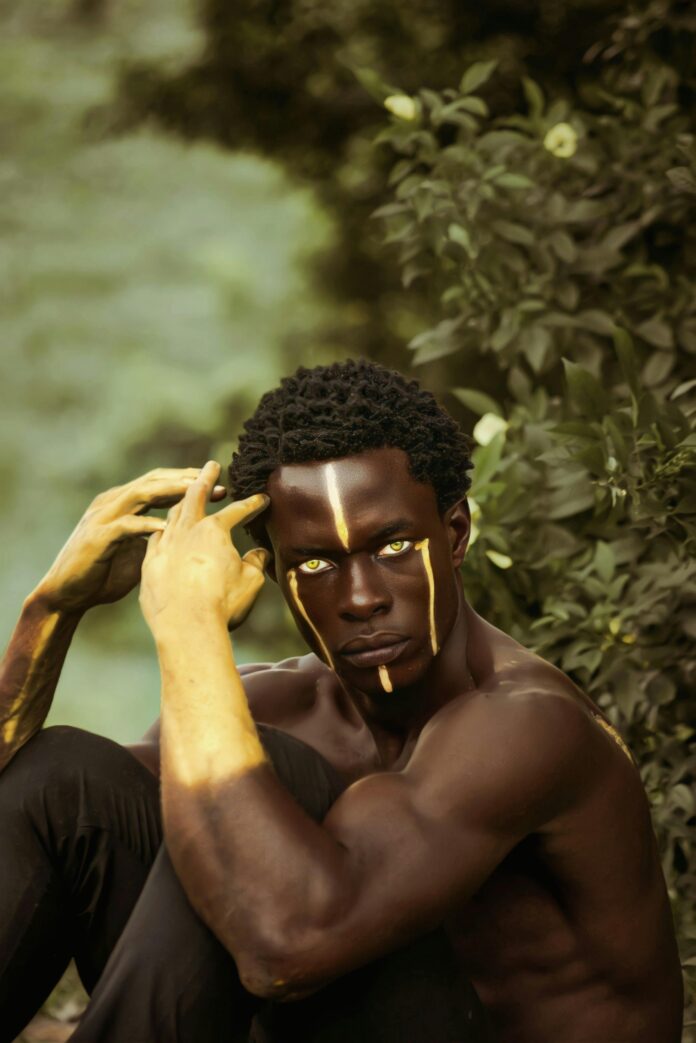African men have long been at the forefront of history, playing pivotal roles as leaders, warriors, scholars, and cultural custodians. From ancient kingdoms to modern societies, their contributions have shaped Africa’s rich tapestry of traditions, innovations, and resilience. This blog post delves into the diverse history of African men, highlighting their unique qualities, historical achievements, and enduring impact on the continent and beyond.
Ancient Warriors and Kingdom Builders
In ancient Africa, men were revered for their bravery in battle, strategic prowess, and contributions to the establishment and expansion of powerful kingdoms.
1. Mansa Musa (Mali):
- Golden Age of Mali: Mansa Musa, the legendary ruler of the Mali Empire in the 14th century, is renowned for his wealth, piety, and patronage of education and the arts.
- Hajj Journey: Musa’s famous pilgrimage to Mecca in 1324 elevated Mali’s international stature and showcased its prosperity and cultural achievements.
2. Shaka Zulu (South Africa):
- Military Innovator: Shaka Zulu, the 19th-century Zulu king, revolutionized warfare tactics and expanded the Zulu Kingdom through military conquest and strategic alliances.
- Legacy: Shaka’s military legacy and cultural reforms left an indelible mark on southern Africa, influencing regional politics and identity.
3. Sundiata Keita (Mali):
- Founder of Mali Empire: Sundiata Keita, known as the “Lion King,” established the Mali Empire in the 13th century, uniting diverse ethnic groups and promoting trade and cultural exchange.
- Epic of Sundiata: His life and achievements are celebrated in the “Epic of Sundiata,” a testament to his leadership, wisdom, and commitment to unity.
Intellectual Pioneers and Cultural Icons
African men have contributed significantly to literature, philosophy, and artistic expressions, enriching global culture with their insights and creativity.
1. Chinua Achebe (Nigeria):
- Literary Giant: Chinua Achebe, a Nigerian novelist and critic, wrote “Things Fall Apart,” a seminal work that explores pre-colonial Igbo society and the impact of British colonialism.
- Literary Impact: Achebe’s writings challenged colonial narratives and reshaped global perceptions of African history and identity.
2. Frantz Fanon (Martinique/Algeria):
- Revolutionary Theorist: Frantz Fanon, an Afro-Caribbean psychiatrist and revolutionary, wrote “The Wretched of the Earth,” analyzing the psychological and social impacts of colonization on oppressed peoples.
- Decolonization Advocate: Fanon’s advocacy for decolonization and anti-imperialism inspired liberation movements across Africa and beyond, shaping post-colonial discourse.
3. Fela Kuti (Nigeria):
- Afrobeat Pioneer: Fela Kuti, a Nigerian musician and activist, pioneered Afrobeat music, blending traditional African rhythms with jazz, funk, and political lyrics.
- Social Critic: Through his music and activism, Fela challenged corrupt regimes and advocated for human rights, becoming a symbol of resistance and cultural pride.
Leaders of Independence Movements and Nation-Building
During the 20th century, African men led independence movements, negotiated nationhood, and shaped the trajectories of newly liberated nations.
1. Nelson Mandela (South Africa):
- Anti-Apartheid Icon: Nelson Mandela, South Africa’s first democratically elected president, led the struggle against apartheid and advocated for reconciliation and social justice.
- Global Statesman: Mandela’s leadership and moral authority earned him international acclaim and established South Africa as a beacon of hope for democratic governance.
2. Kwame Nkrumah (Ghana):
- Pan-African Visionary: Kwame Nkrumah, Ghana’s first president and a leading advocate of Pan-Africanism, championed continental unity and economic independence.
- Legacy: Nkrumah’s leadership in Ghana’s independence and his advocacy for African unity inspired generations of leaders and activists across the continent.
3. Jomo Kenyatta (Kenya):
- Founding Father: Jomo Kenyatta, Kenya’s first president, played a pivotal role in Kenya’s independence struggle and nation-building efforts.
- Political Vision: Kenyatta’s leadership emphasized national unity, economic development, and preservation of cultural heritage, laying foundations for Kenya’s post-colonial identity.
Contemporary Contributions and Challenges
In the 21st century, African men continue to shape politics, economics, culture, and technology, facing new challenges and opportunities in a globalized world.
1. Economic Leadership:
- Entrepreneurship: African men are at the forefront of entrepreneurship and innovation, driving economic growth and creating employment opportunities across various sectors.
- Challenges: Economic disparities, access to capital, and infrastructure deficits pose challenges to sustainable development and inclusive growth.
2. Cultural Preservation:
- Cultural Stewardship: African men play crucial roles in preserving cultural traditions, languages, and heritage, passing down ancestral knowledge and values to future generations.
- Global Influence: African cultural expressions, from music and fashion to literature and cuisine, resonate globally, contributing to cultural diversity and intercultural dialogue.
3. Advocacy and Leadership:
- Social Justice: African men advocate for gender equality, human rights, and social justice, addressing issues such as gender-based violence, youth empowerment, and environmental sustainability.
- Role Models: Positive role models and leadership inspire youth and communities to aspire to excellence and contribute to positive societal change.
Conclusion
African men embody resilience, leadership, and cultural richness, contributing profoundly to their communities, nations, and the global stage. From ancient warriors and intellectual pioneers to modern-day leaders and innovators, African men have shaped history, challenged stereotypes, and inspired future generations. As Africa navigates the complexities of modernity and globalization, the contributions of African men are indispensable to achieving inclusive growth, social justice, and sustainable development across the continent. Through continued empowerment, advocacy, and recognition of their diverse talents and achievements, African men will continue to shape a brighter and more equitable future for all.



